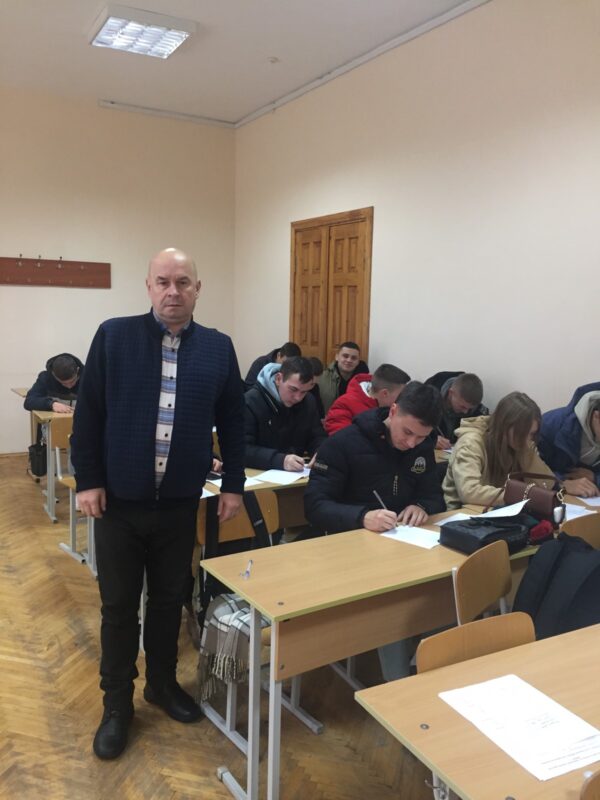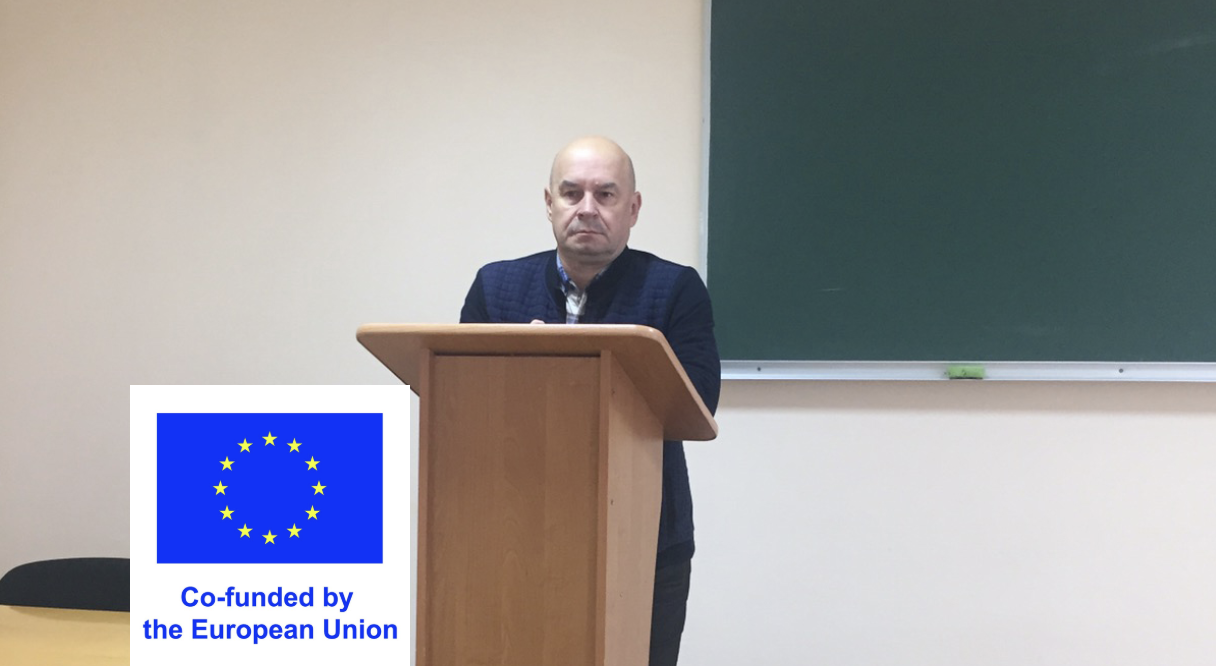A lecture on the topic “Methodology for organizing a European model of research and innovation for Smart Specialization” was held within the framework of the Jean Monnet Module, Erasmus (Project 101085642 – SSEPRDS – ERASMUS-JMO-2022-HEI-TCH-RSCH “Smart Specialization: European Experience of Regional Development Strategy”).
The following issues were discussed during the lecture:
- Features of innovation research: a theoretical analysis of the postulates.
- European experience of innovation policy.
- Methods and tools of European innovation research.
- Prospects for the application of the latest methods in European innovation research.
The lecture for bachelors was given by Serhii Hunko, Deputy Director of the Educational and Research Institute of Innovation, Nature Management and Infrastructure.
The methodology of European innovation research is aimed at analyzing and measuring innovation activity in various sectors of the economy and identifying factors that promote or hinder innovation development. The main aspects of the methodology include:
- Determining the relevance of innovations.
- Classification of innovations.
- Measuring innovation.
- Analysis of innovation activity.
- Assessment of the innovation environment.
- Study of the factors of innovation success.
- International comparison.
- Assessment of the impact of innovations.
The methodology of European innovation research is a set of principles and methods focused on creating options for a fundamentally new understanding and description of the world, as well as on finding fundamentally new ways to solve long-standing problems.

During the lecture, it was determined that the methodology of European innovation research is used to create a systematic approach to the study and development of the innovation potential of countries and sectors of the European Union. This is a cyclical process that goes through the following stages: identification (defining the problem, i.e. the need for change); development of ideas to solve the problem; development of an innovation; testing and evaluation of the innovation; adoption of the innovation; institutionalization of the innovation.
Thus, the purpose of the European innovation research methodology in the field of education, research, development, production, technical and technological, and artistic research is to constantly renew the economic system structurally, ensuring that the national interests of the EU countries are respected by consolidating the efforts of enterprises, industries, and regions to effectively implement scientific achievements in the markets.
We invite everyone to attend the lecture series and take an active part in studying the European experience of the smart specialization regional development strategy!
Funded by the European Union. However, the expressed views and opinions belong solely to the authors and do not necessarily reflect the views of the European Union or the European Education and Culture Executive Agency (EACEA). Neither the European Union nor the grantor can be held responsible for them.

